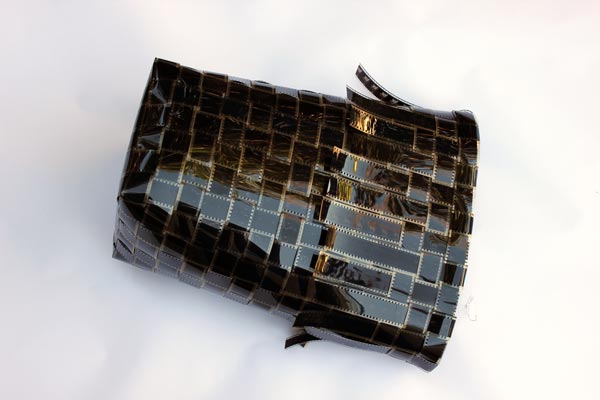Rhythm
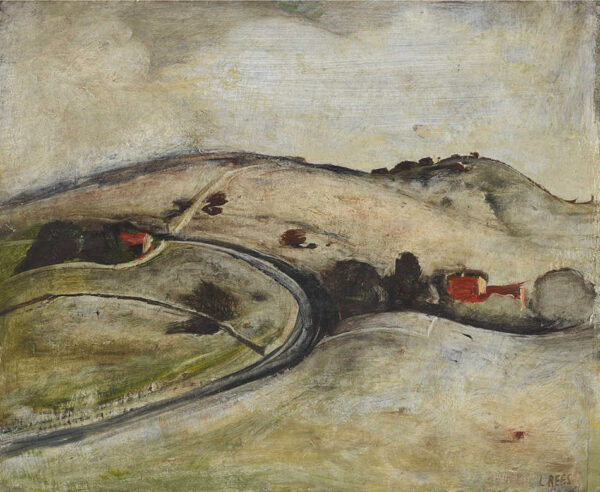
If you walk through any Australian pastoral grassland, taking a route that allows your journey to effortlessly follow the shape of the land, you may also be walking along an ancient path used by other people; an artefact of sorts, of the travels and rhythmical movements of earlier lives.
The artefact may be invisible; still there, however, buried in the ground below your feet as you walk along a ridge or through a gap between two hills or beside the remnant shoreline of an old sea. The ancient path still exists, as traces that may only be detectable as a subtle shift in the colour or compaction of the earth, or as charcoal left from a hundred hearths dotting places along the way — or it could be wholly visible, as a present day road that traces the old journeys.
In 1947 the Art Gallery of New South Wales purchased a small painting by Australian artist Lloyd Rees. Painted in Gerringong on the states south coast The Road to Berry has captured a ‘rhythmical movement’ (Rees’s words) in the scene — the curves of the roads and fencelines, the folds of the hills, the placement of houses as two patches of vermilion in an otherwise sombre grassland — an atmospheric landscape, sensory in its effect on people, that appears to have touched many, including myself.
***
Australia, 1940s. A man sits under a tree in Gerringong, southern New South Wales. He looks at a road winding through some grass covered hills; and, allowing that artists are free to invent whatever they ‘see’: he sees clouds (probably), houses (probably), scatterings of trees (most likely). The small canvas board in front of him is still blank but the landscape is loaded.
We can’t know what he is thinking, or if what he is thinking has anything to do with the rhythmical movement he applies to the canvas that he later says, ‘just happened’. We can know however, with only a little magical thinking that the rhythm and movement is already there — under the hills, running through the grassy slopes, inside the houses, floating through the woven air of the sky — ancient pathways, changing seasons, old climate patterns, species evolving and becoming extinct, billions of births and deaths, houses, ruins, shifting shorelines, moving fencelines. The unwritten history of the landscape’s rhythmical movement is inseparable from the moment’s fleeting view.
Something of the landscape got into a person sitting under a tree in Gerringong. We can often sense this, without needing to understand why — that when we enter a landscape the landscape enters us.
*
Lloyd Rees quote from the Art Gallery of New South Wales web archive:
The Road to Berry is a tiny picture I remember painting from under a copse of trees … and I just remember a small canvas and a sort of rhythmical movement that just happened; I was always amazed at the attraction it had … I was never able to repeat that little picture, and that’s a good thing.
artgallery.nsw.gov.au/collection/works/7940
Down to the wire
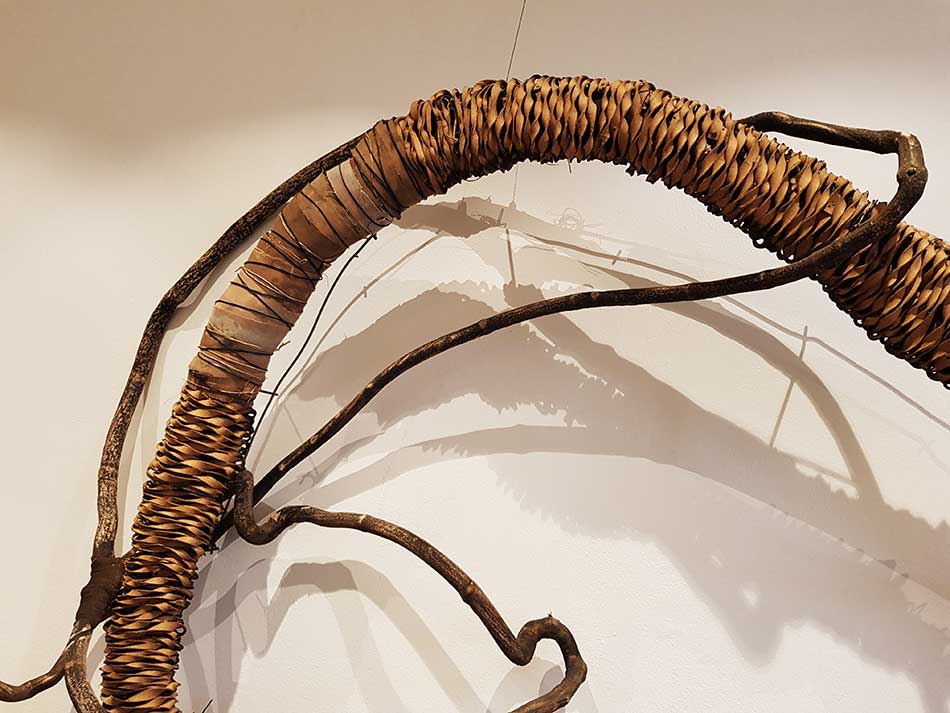 Looking at these beautiful objects makes me want to immediately build a 15 metre long wall to hold a few of them.
Looking at these beautiful objects makes me want to immediately build a 15 metre long wall to hold a few of them.
Down to the wire —
new work by Alison Coates
Shapiro, Sydney
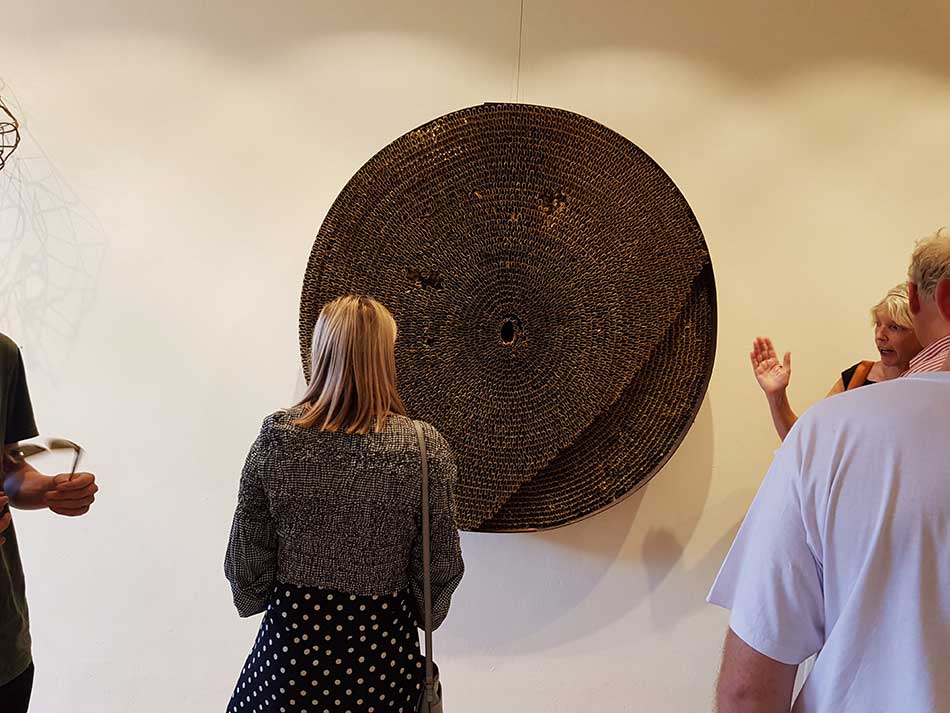
Mask
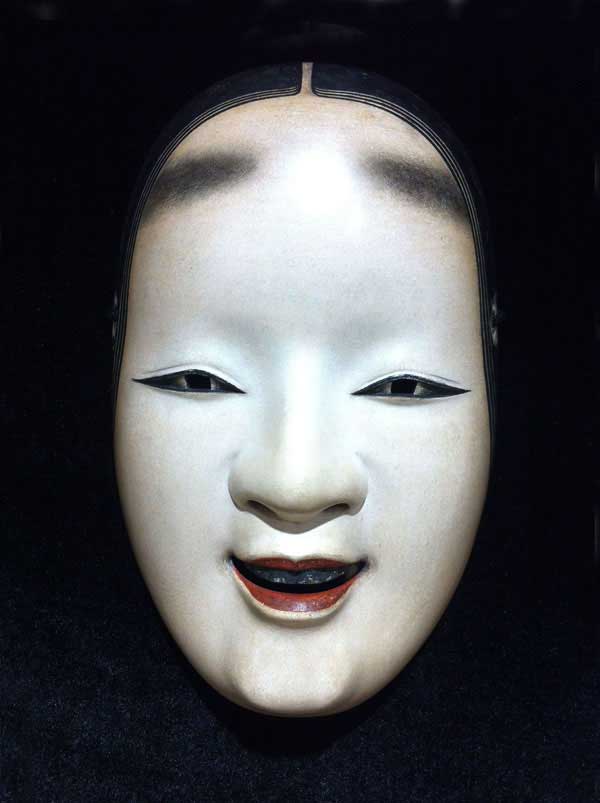 Noh masks by Hideta Kitazawa
Noh masks by Hideta Kitazawa
Shadow & Light
The Japan Foundation Gallery
L4 Central Park, 28 Broadway, Sydney
16–30 September
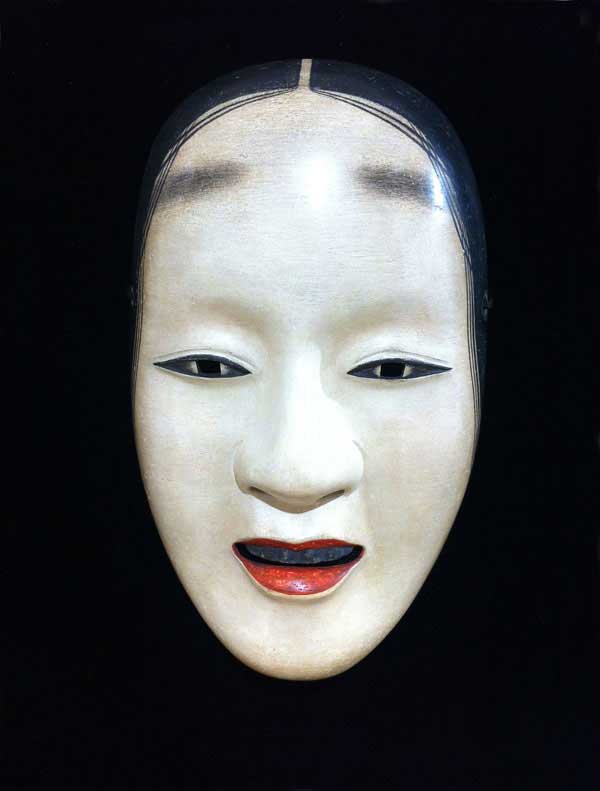 x
x
There it goes
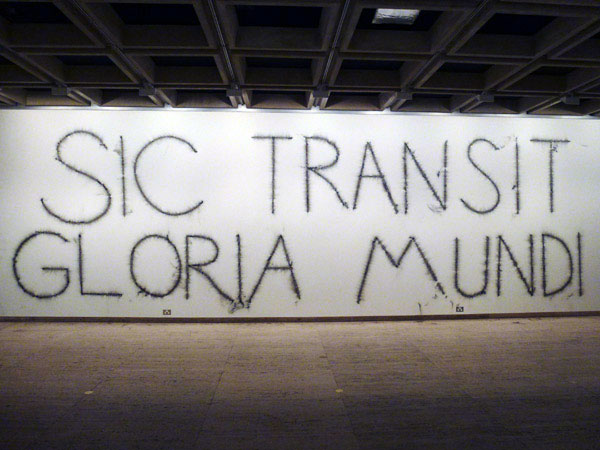
Mircea Cantor
Sic Transit Gloria Mundi, 2014.
19th Biennale of Sydney
Art Gallery of New South Wales
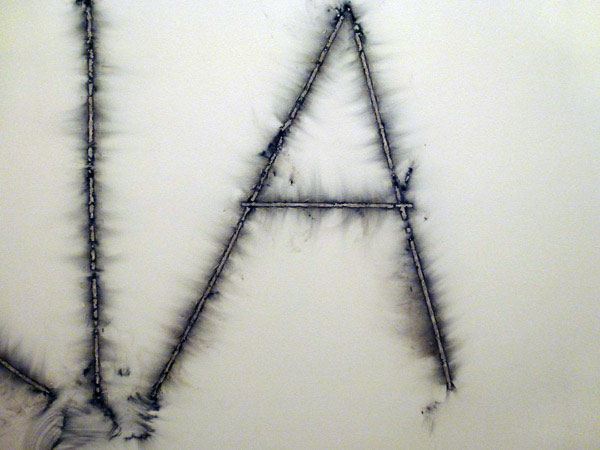
x
Redfern Biennale
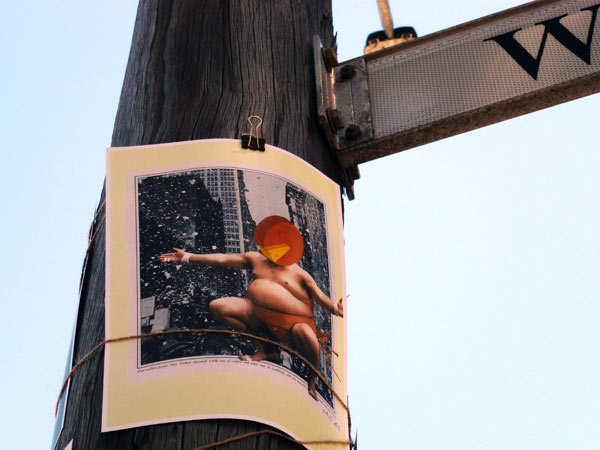
The Redfern Biennale was a walk-around exhibition on the streets bounding a Redfern Housing Commission precinct. About 60 artists participated. It was organised by local gallery, Damien Minton, and ran for 7 hours on Saturday 8 March. An accompanying essay by Yellam Nre can be read on the gallery’s web site.
Above: Bronwyn Tuohy, Stuck Up
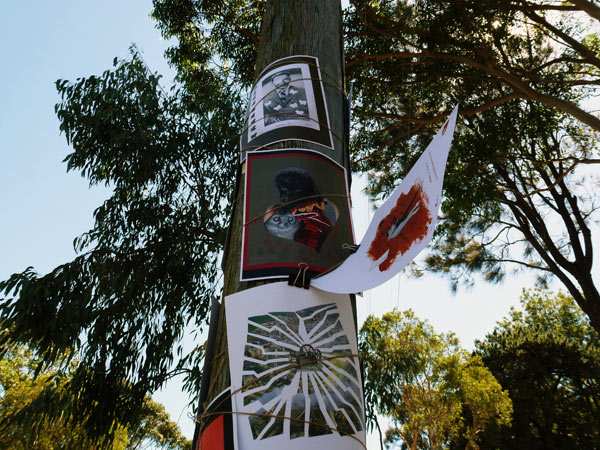
Bronwyn Tuohy
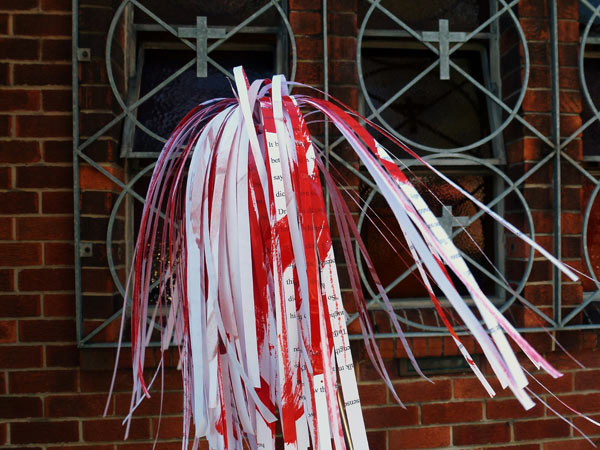
Jim Anderson, Better Red than Read
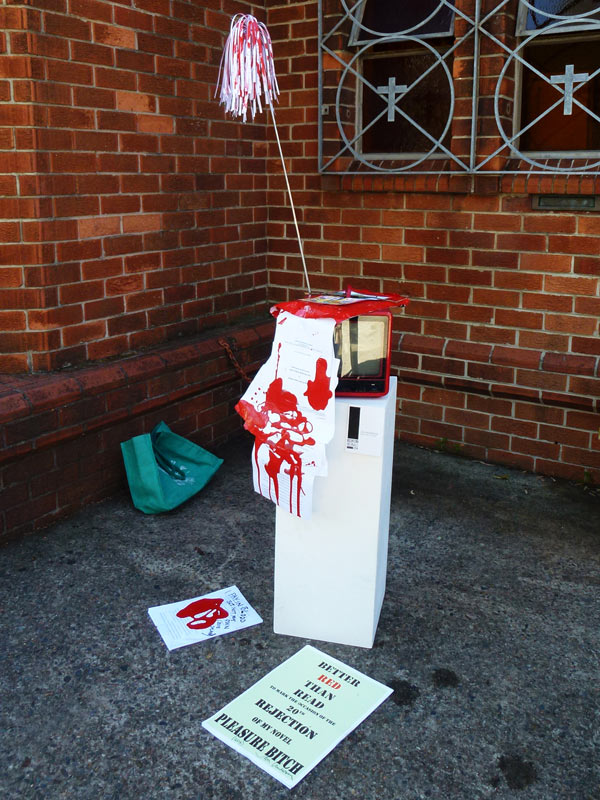
Jim Anderson
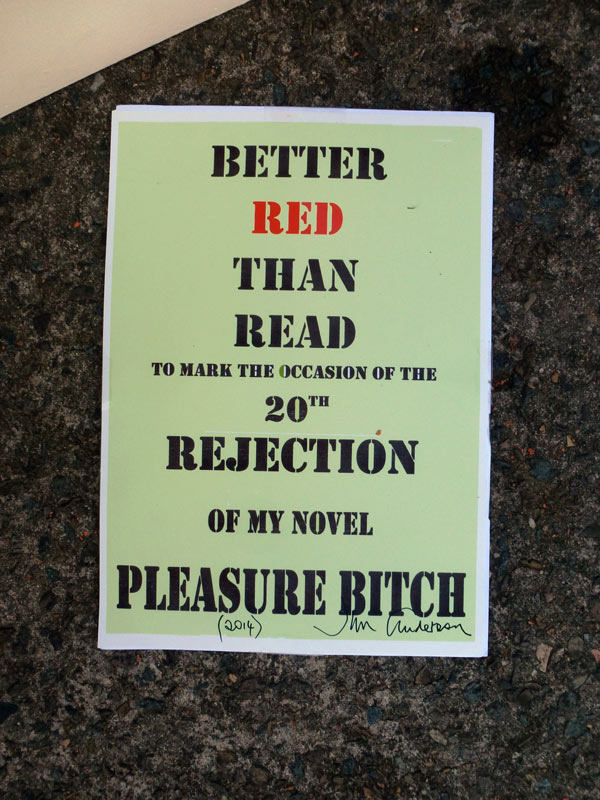
Jim Anderson
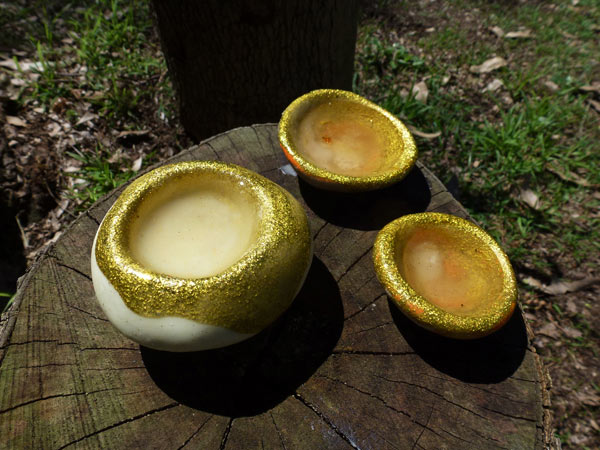
Liane Rossler, For the locals: Bird Bee Butterfly Biennale Buffet
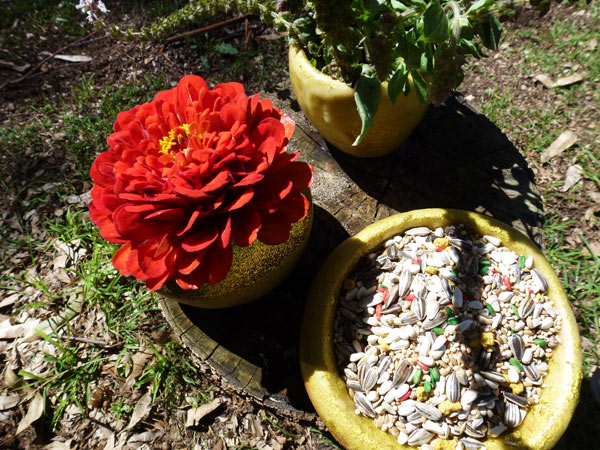
Liane Rossler
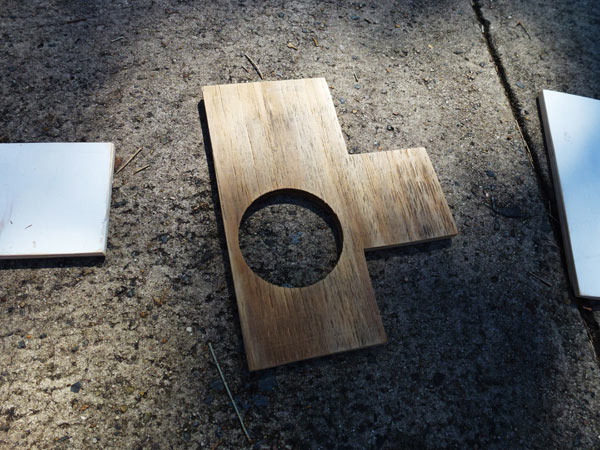
Margaret Roberts, Polygon Landscape (Redfern)
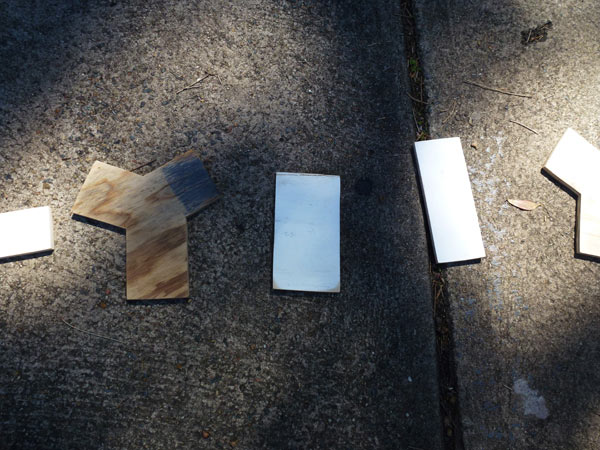
Margaret Roberts
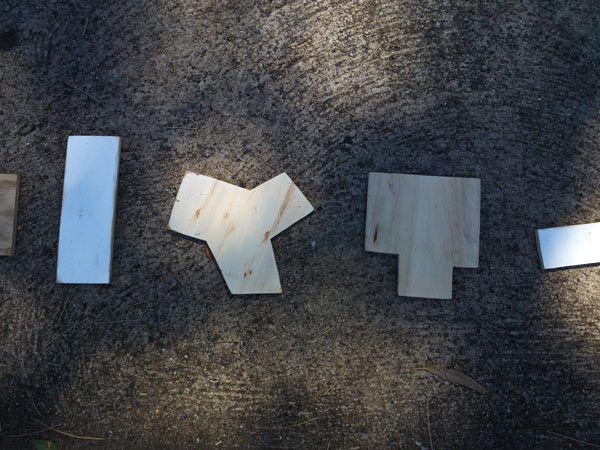
Margaret Roberts
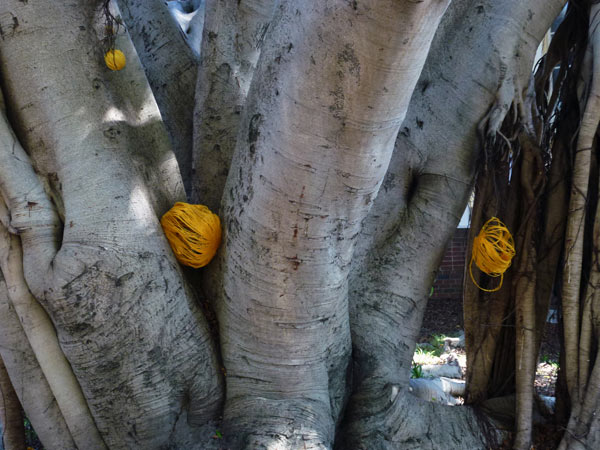
Sara Givins, Tumbling Tumbleweeds
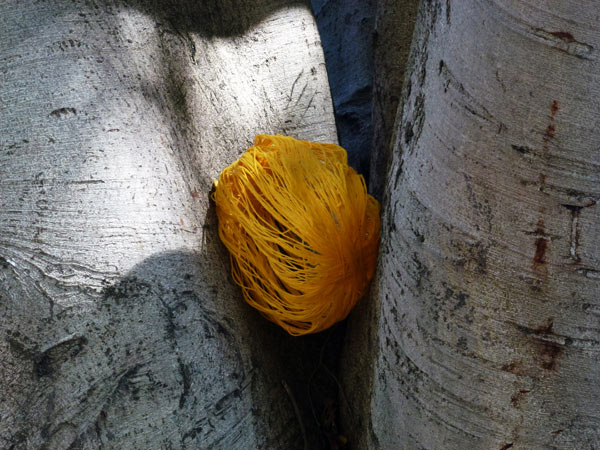
Sara Givins
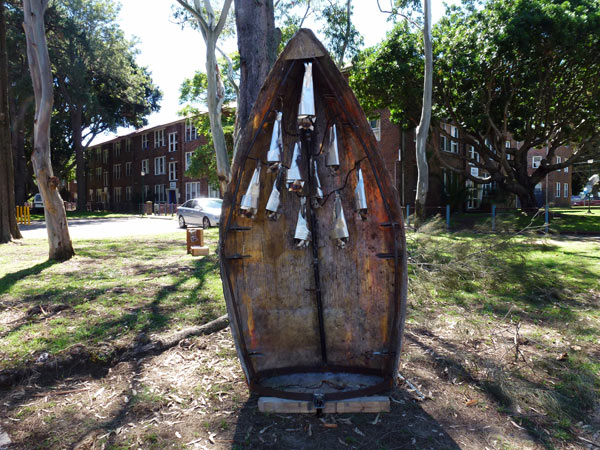
Stephen Coburn, Boat Cave
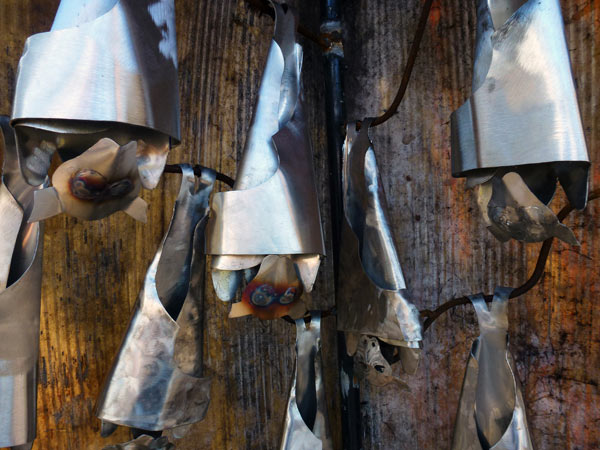
Stephen Coburn
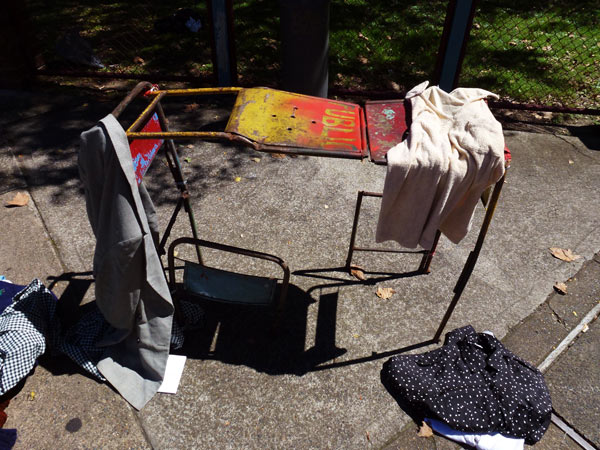
Blake Kendall, I remember she ironed
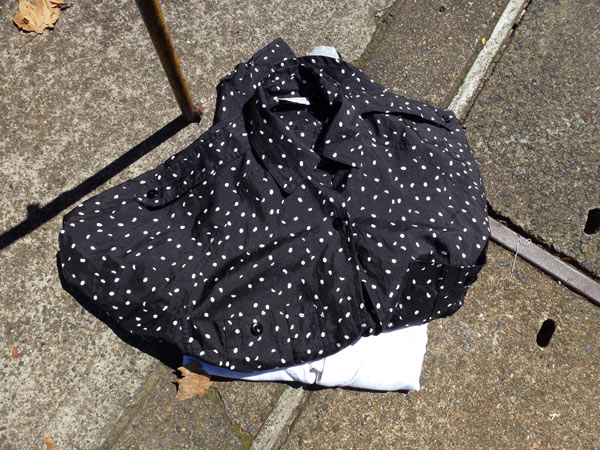
Blake Kendall
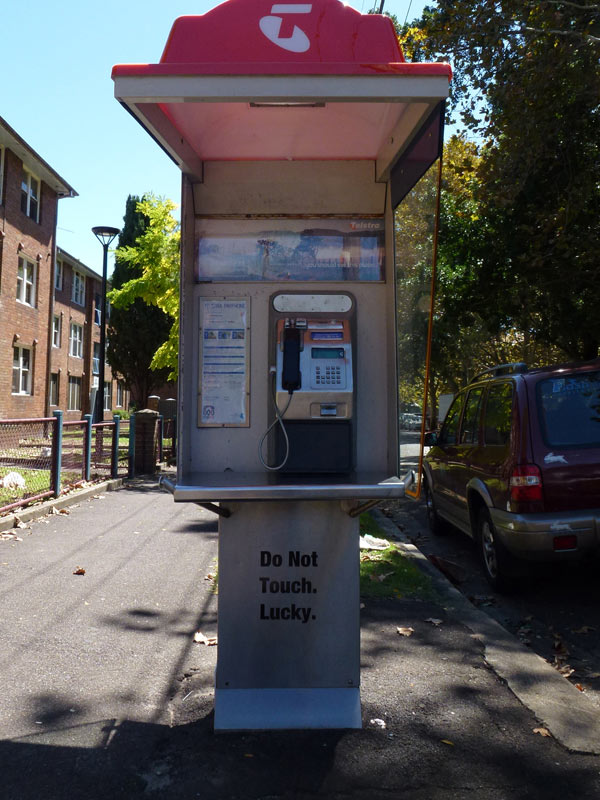
Lynne Barwick, Do Not Ignore It
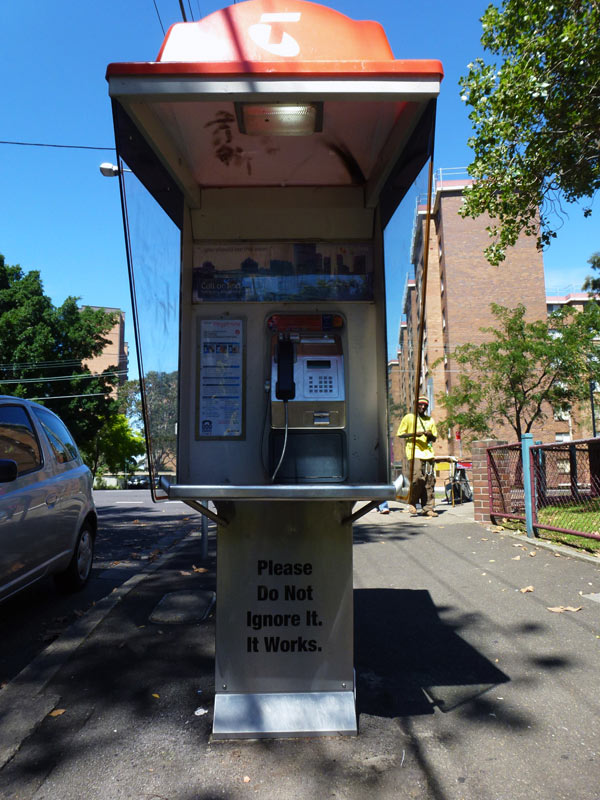
Lynne Barwick
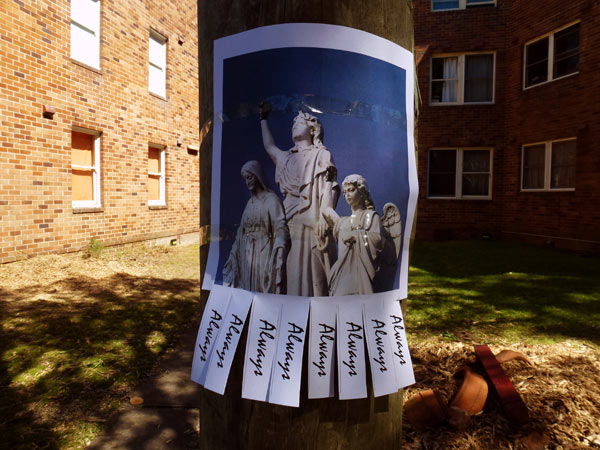
Unknown
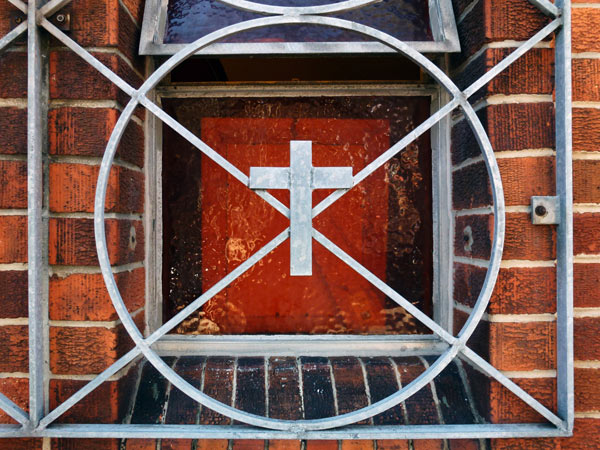
Detail, local church.
Marrickville Open Studio Trail
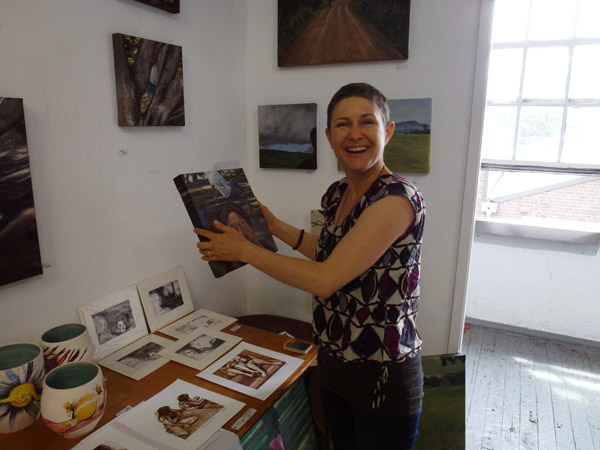
Marrickville Open Studio Trail (MOST) was a mainly DIY tour program listing 45 artist-run initiatives and galleries on Saturday 1 and Sunday 2 March. It was presented by Marrickville Council as part of Art Month Sydney 2014.
Above: Vicki White, Tinpot Studio, St Peters.
In 2012 the British artist Robert Montgomery (in a work called Echoes of Voices in the High Towers) wrote some text for about 20 advertising billboards around Berlin and the old Tempelhof Airport. The subject of one of them was about place and memory and contained this line in white capitals:
<THIS IS WHAT YOU CAN DO WITH CITIES WHEN YOU LEARN THEM LIKE MUSICAL INSTRUMENTS>
A picture of this billboard appears in this blog in 2 or 3 posts, suggesting I guess, that for me, it keeps hitting the right note. I like the idea of learning cities. Apart from the pleasure of looking at the artwork, I’m sure this is the appeal of programs like MOST: walk, look at buildings, check out shops, eat in a different cafe, ride a less familiar train line, see where people work, see what they make, talk to them about why they do it.
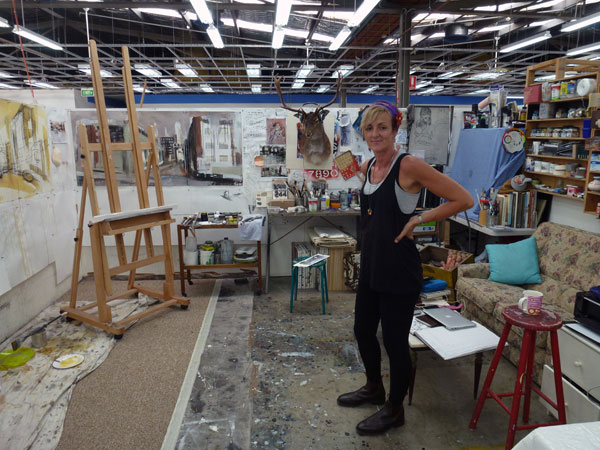
Jody Graham, May Street Studios, St Peters.
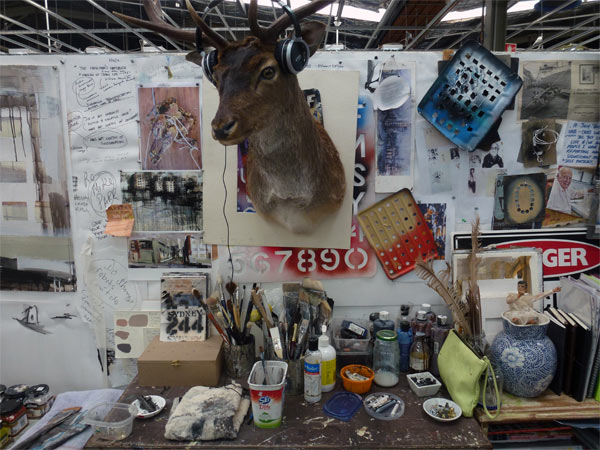
Jody Graham’s studio.
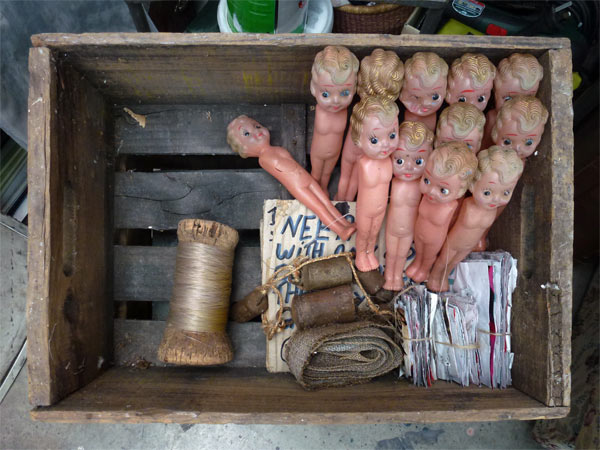
Jody Graham’s studio.
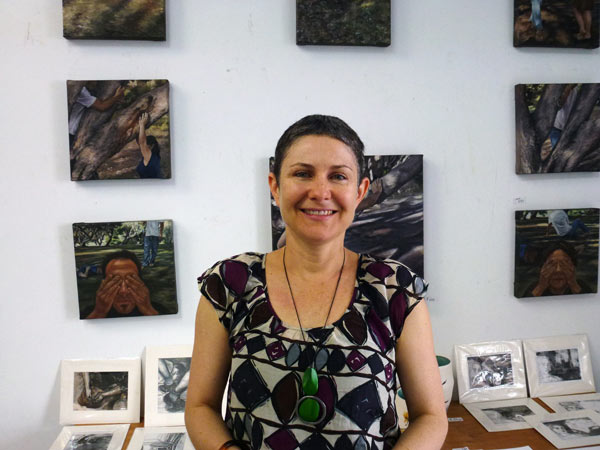
Vicki White, Tinpot Studio, Edith Street, St Peters.
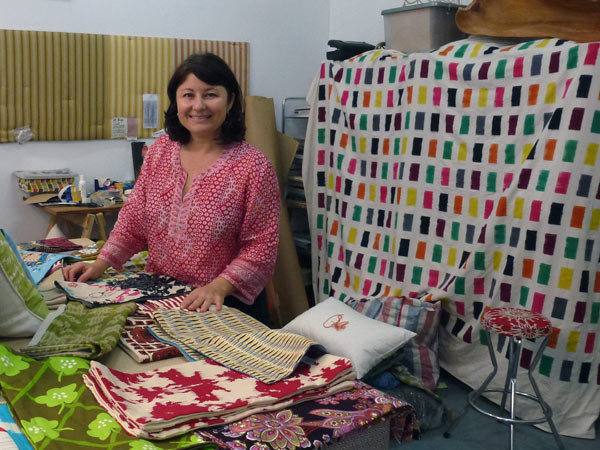
Catherine White, Tinpot Studio
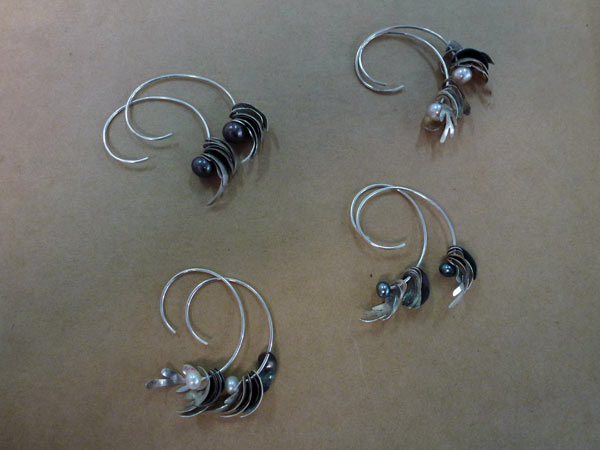
Jewellery by Catherine White
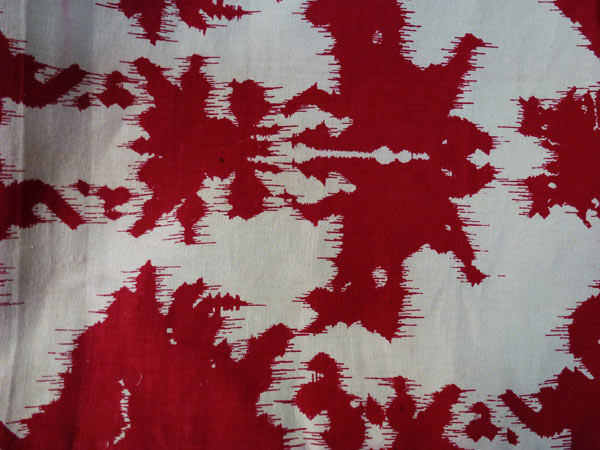
Bag by Catherine White. (Textile designer unknown).
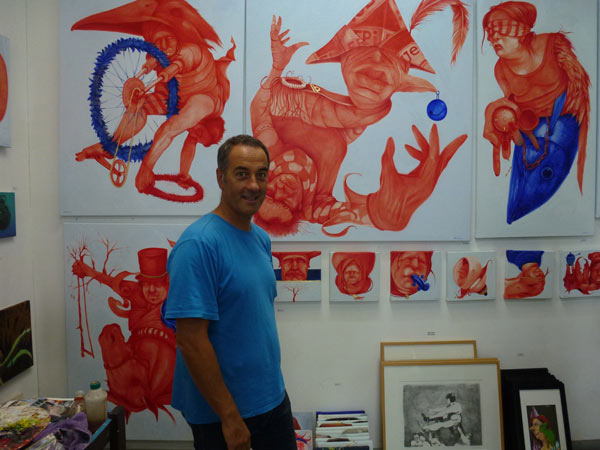
Eric Lobbecke, Tinpot Studio.
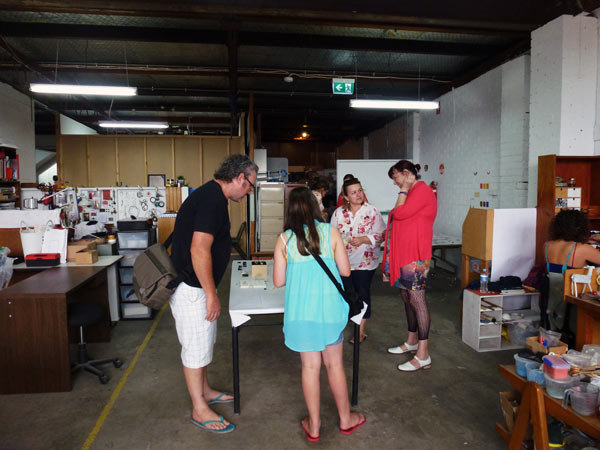
Squarepeg Studios, Junction Street, Marrickville.
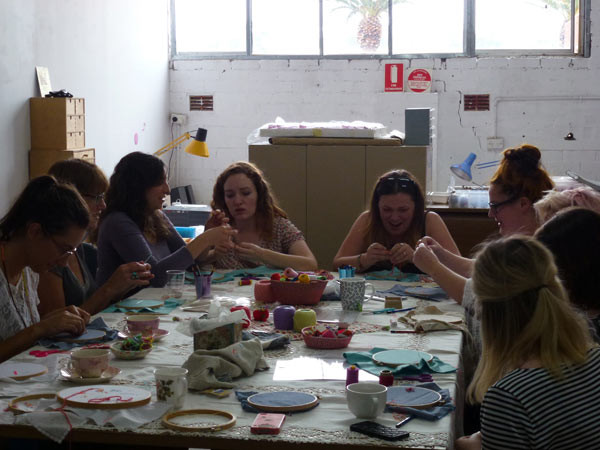
Squarepeg Studios.
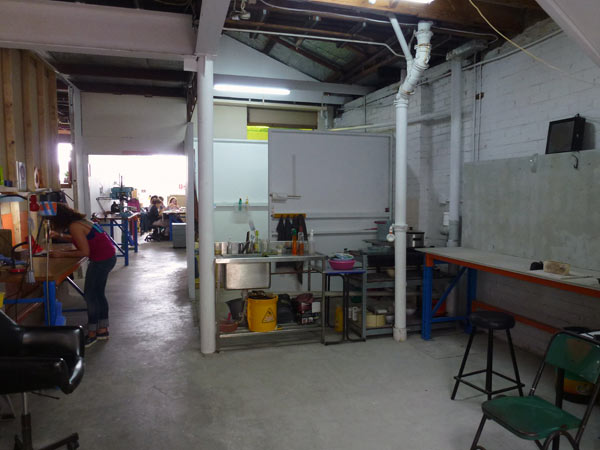
Squarepeg Studios.
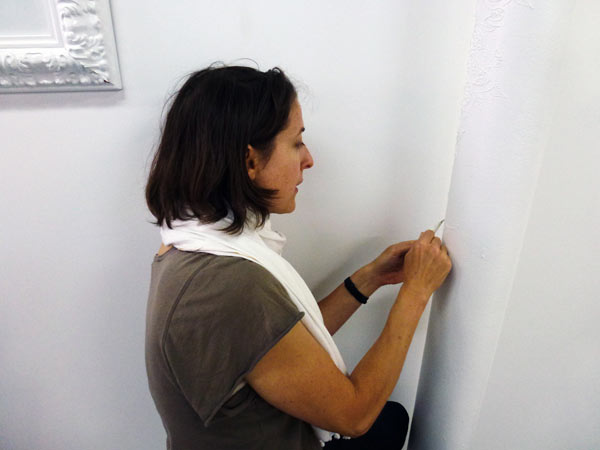
Matina Bourmas, Airspace Projects, Junction Street, Marrickville.
Matina Bourmas, Icy Pole, 2014.
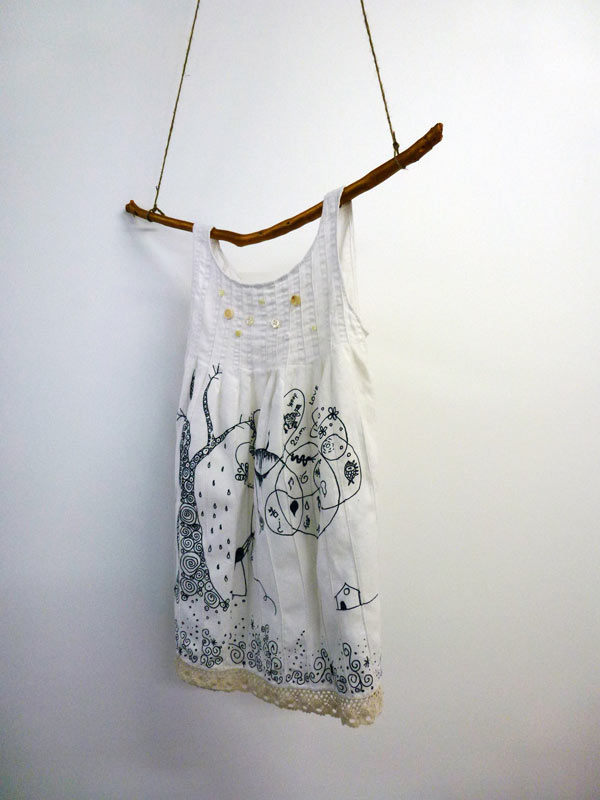
Airspace Projects, Dawn-Joy Leong, Doodle Dreams, 2013.
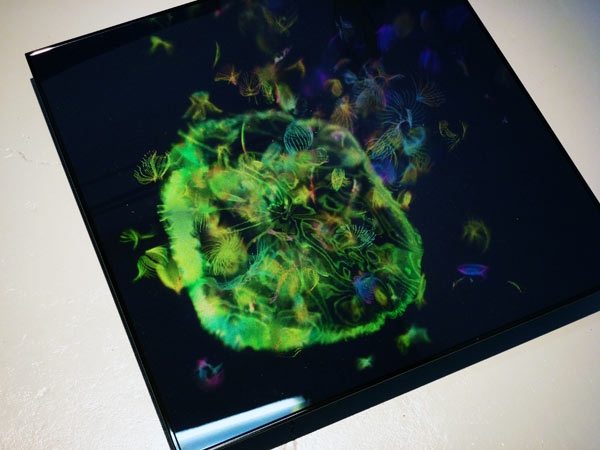
Airspace Projects, Paula Dawson, Hyper object: Homeland, 2013.
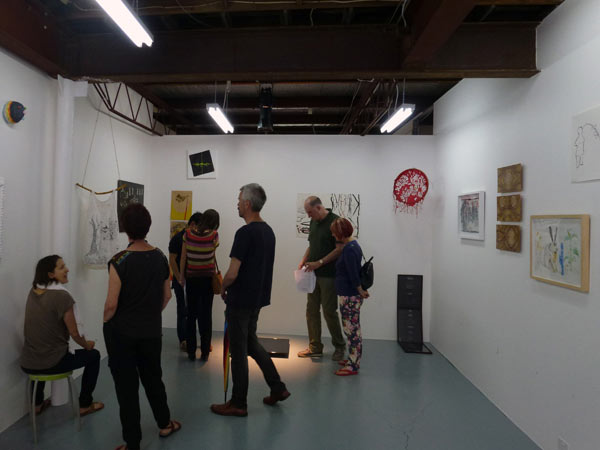
Airspace Projects
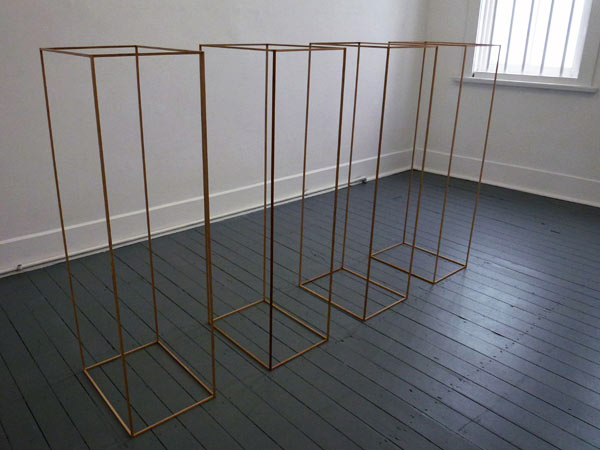
SNO, Marrickville Road, Marrickville.
Susie Idiens, Passage, 2014
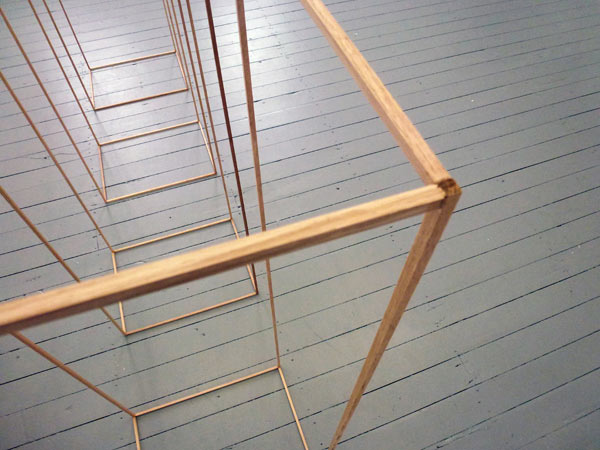
Susie Idiens, Passage, 2014
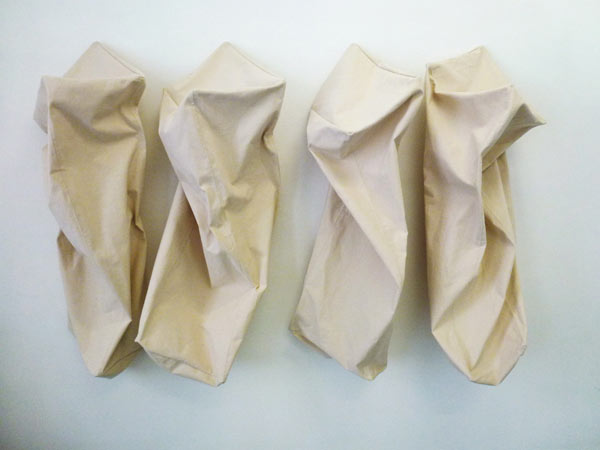
Susie Idiens, Passage, 2014
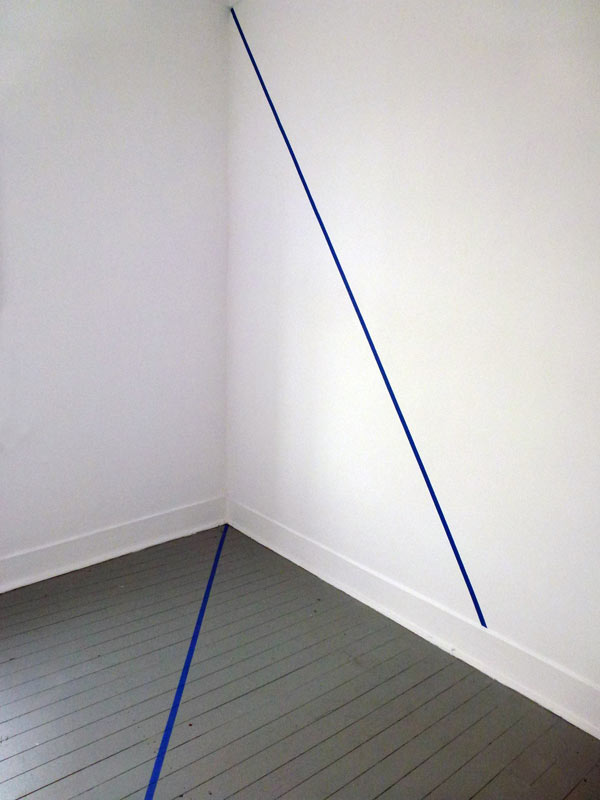
SNO, Kelley Stapleton, Two lines and a jump rope, 2013.
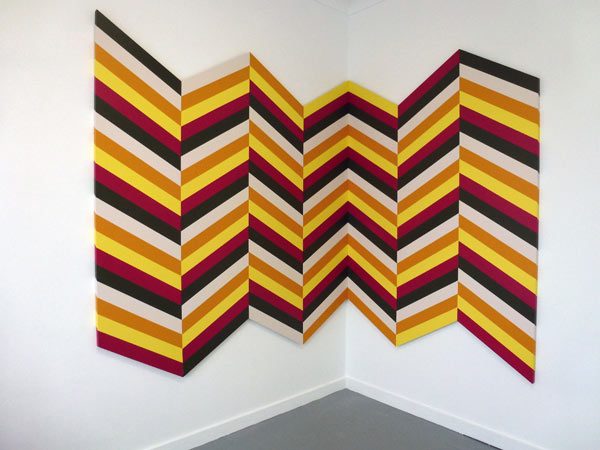
SNO, Sophia Egarchos, Step into You, 2014.
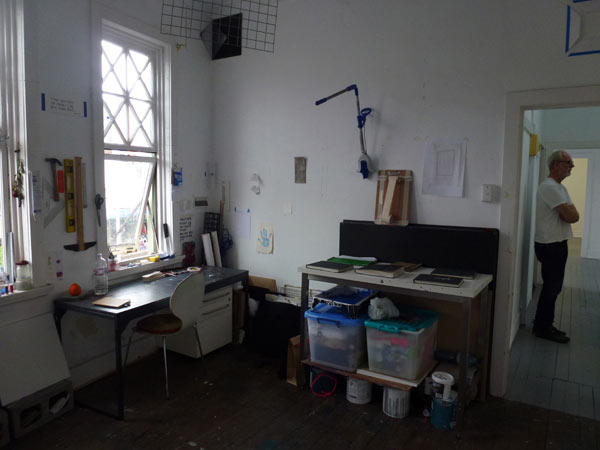
SNO, workroom.
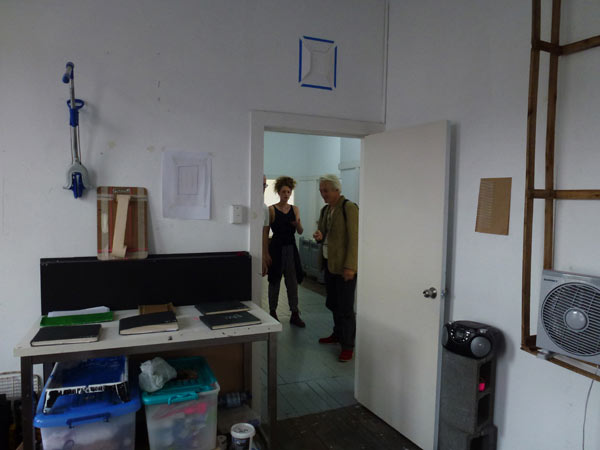
SNO workroom; Kelly Stapleton talking to MOST visitor.
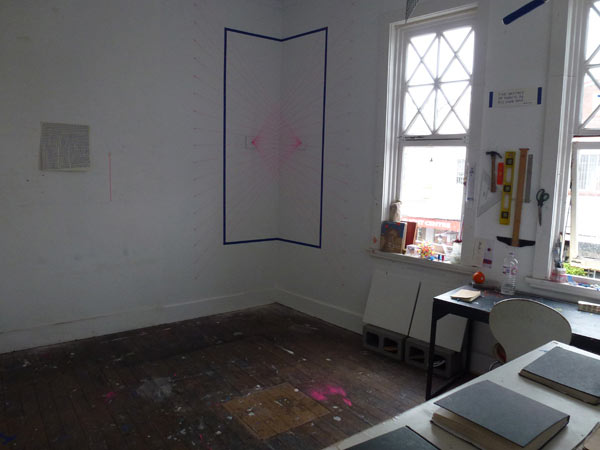
SNO, workroom.
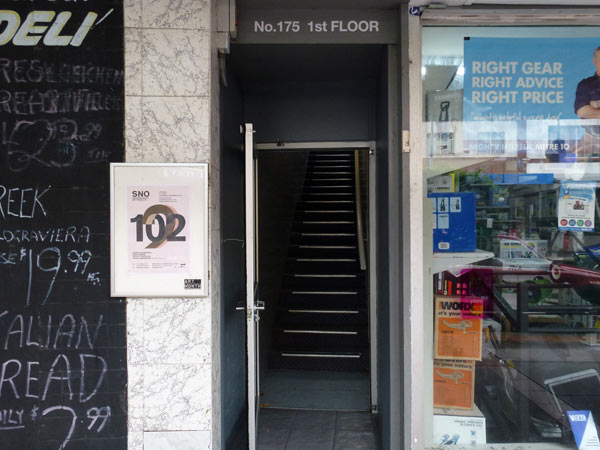
SNO, street entry.
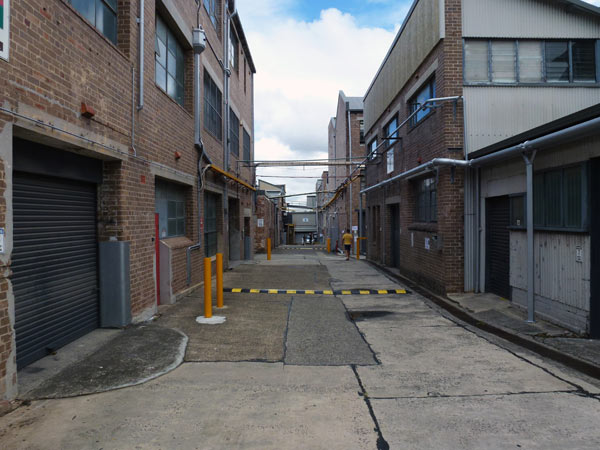
Tinpot Studio, street entry.
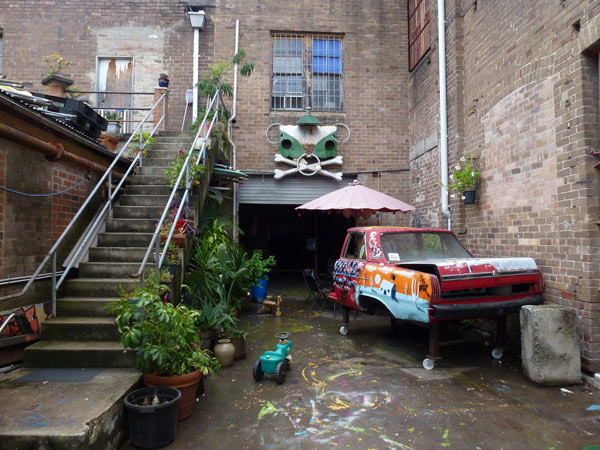
Tortuga Studios, backyard.
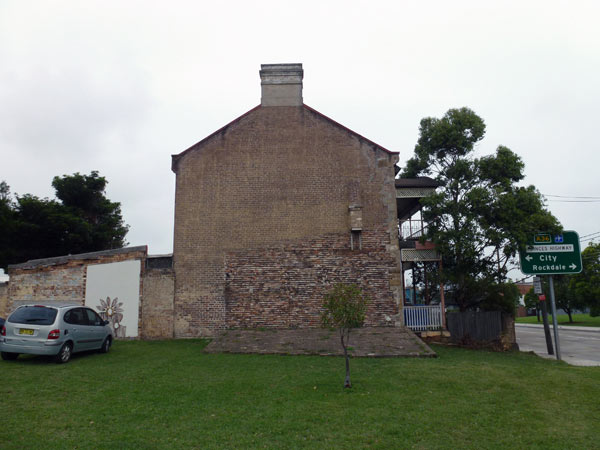
Stone Villa Studios, nice blank wall.
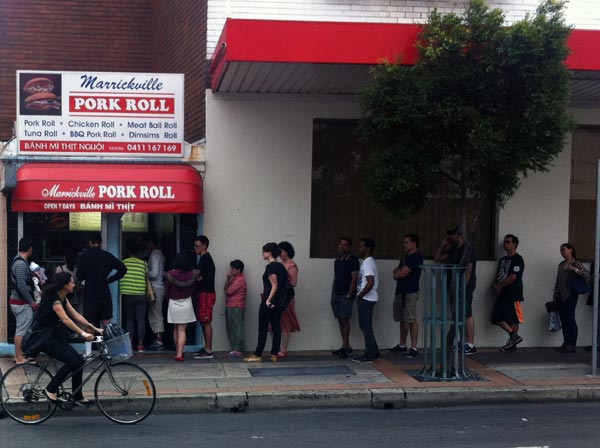
Must be doing something right.
Marrickville Pork Roll, Illawarra Road, Marrickville.
RealTime third time
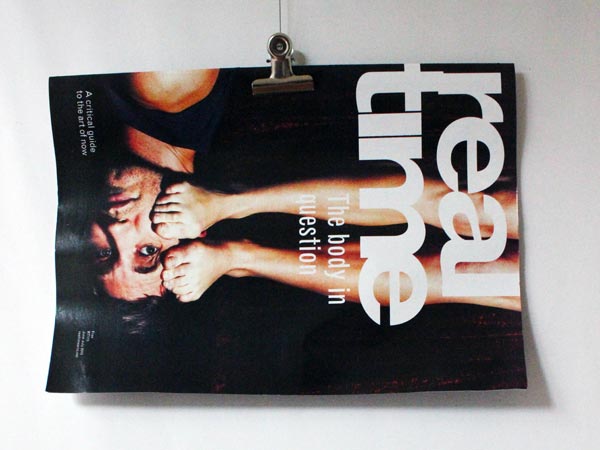
It’s nice to be asked once to design an arts magazine but a rare thing to be asked to also do the subsequent redesigns—two in all—the latest being June/July 2013, which is a fresh look at the design produced by Monika Domaschenz and myself in 2006. All page layouts shown are by Gail Priest.
RealTime: a critical guide to the art of now.
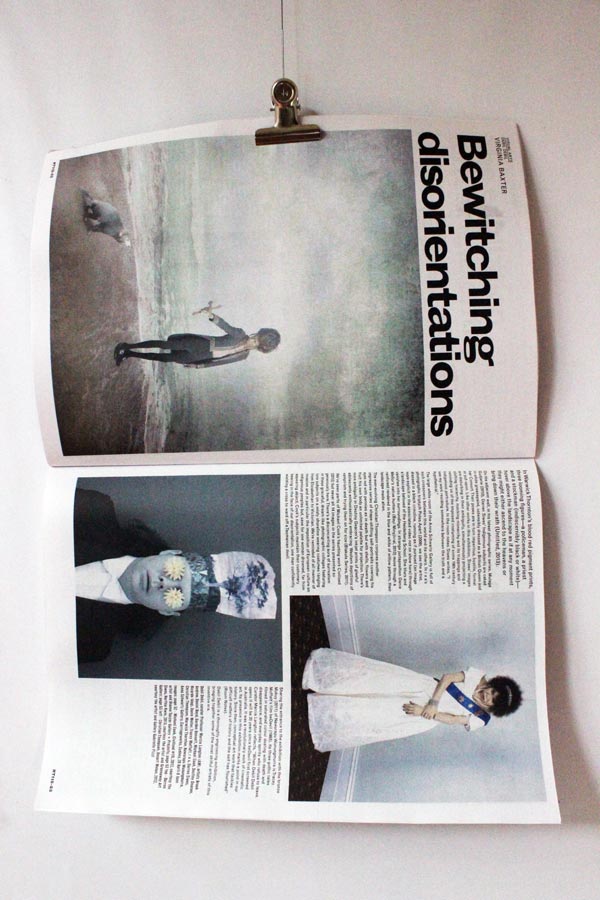
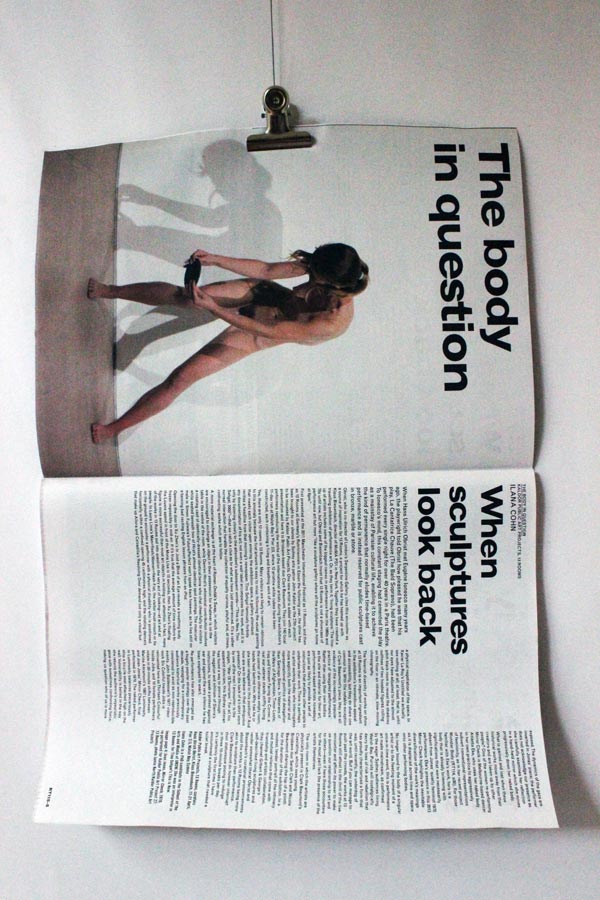
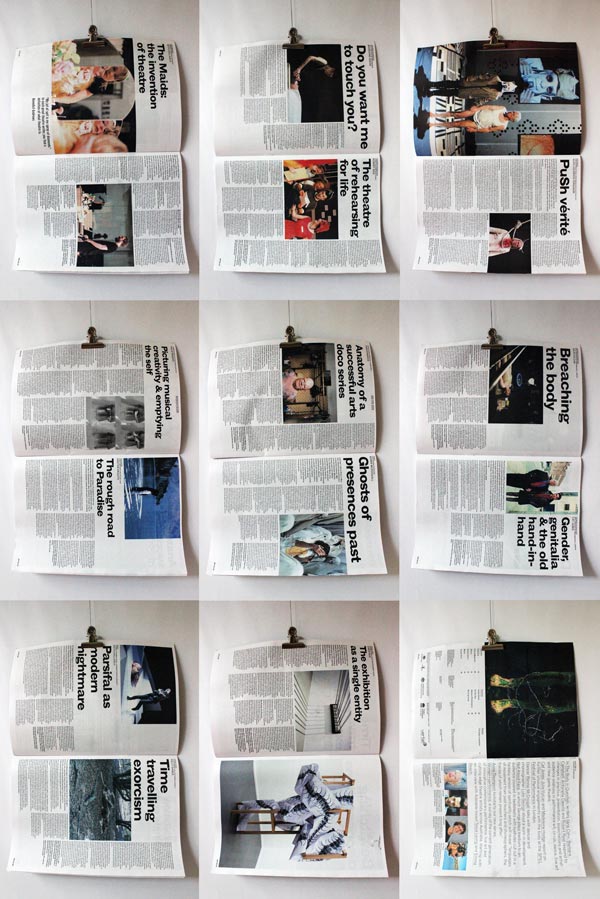
x
Running the City
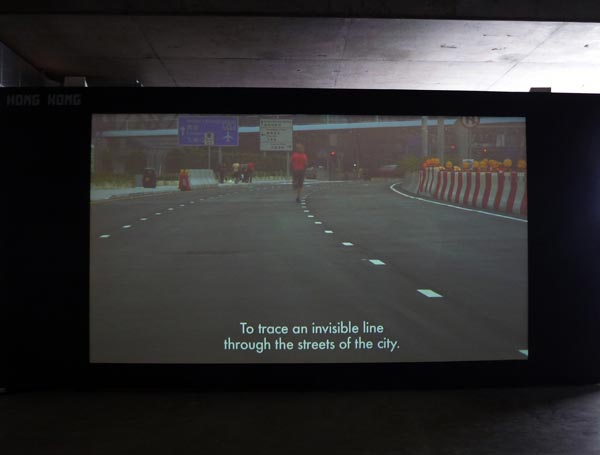
‘the city is like a pinball table’; ‘a giant assemblage of prefabricated obstacles’; ‘social space’; ‘to loot space and time’; ‘to be suspicious’; ‘ non linear fragments used for the construction of memory’; newscape’; ‘porous city’; ‘to become invisible for just a few minutes’.
Runscape (Hong Kong), 2010
Single channel HD video, 24:18 mins
Laurent Gutierrez, Valerie Portfaix
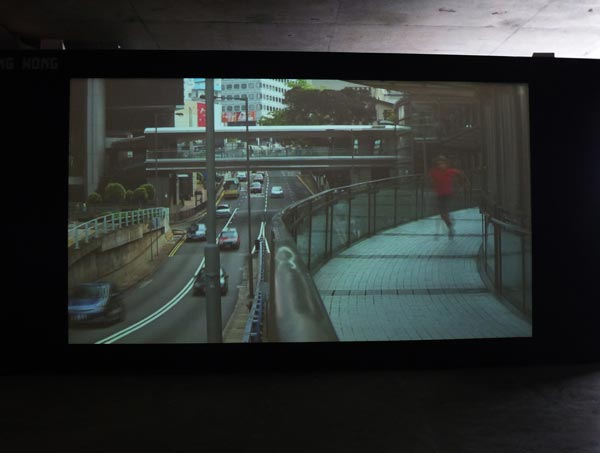
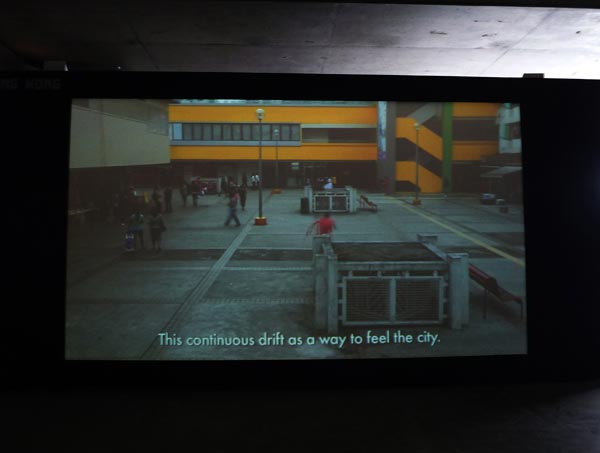
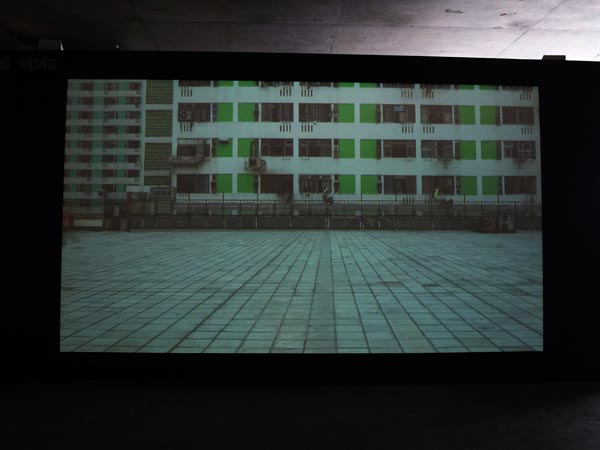
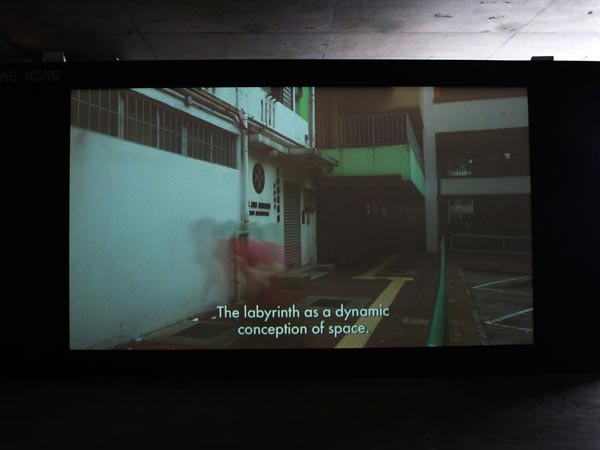
x
13 Rooms
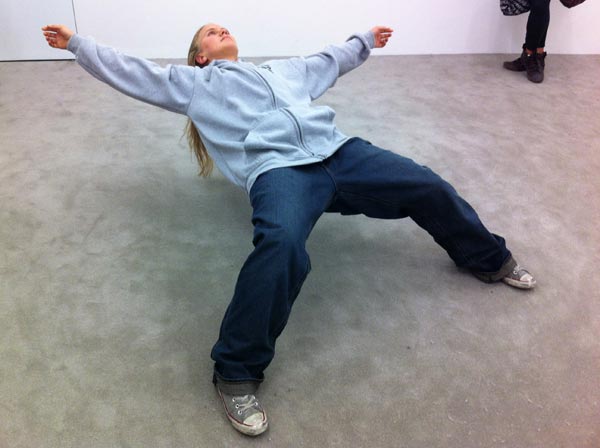
Xu Zhen
For In Just a Blink of an Eye, 2005
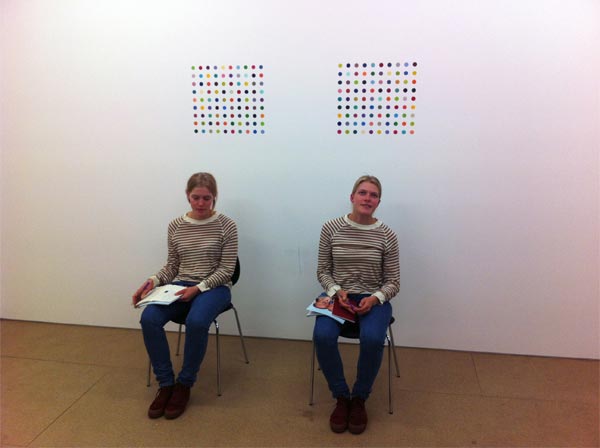
Damien Hirst, 1992
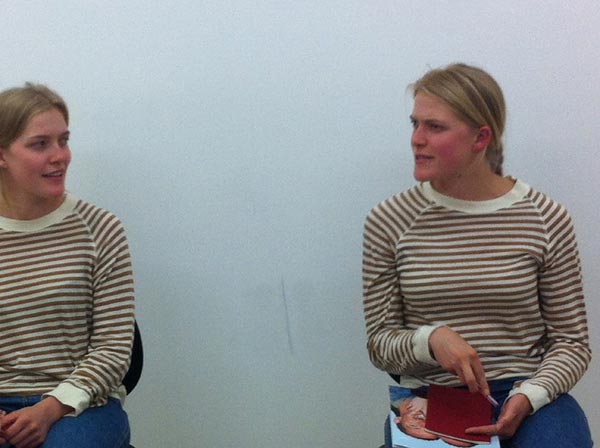
Damien Hirst, 1992
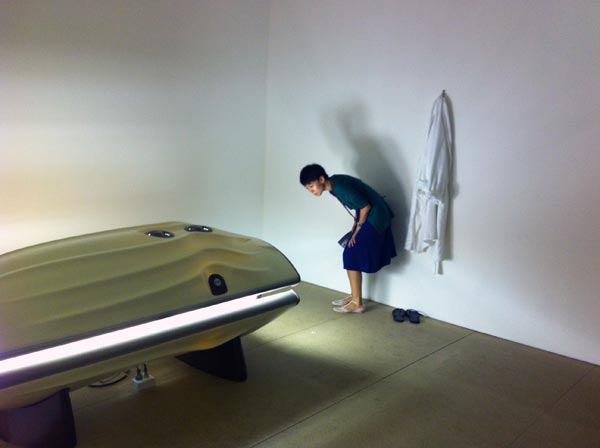
Simon Fujiwara
Future Perfect, 2012
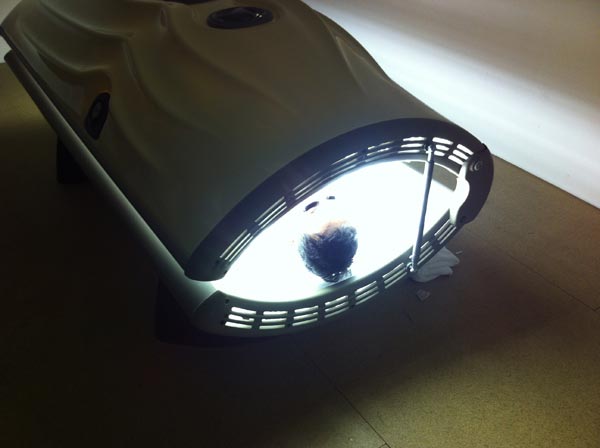
Simon Fujiwara
Future Perfect, 2012
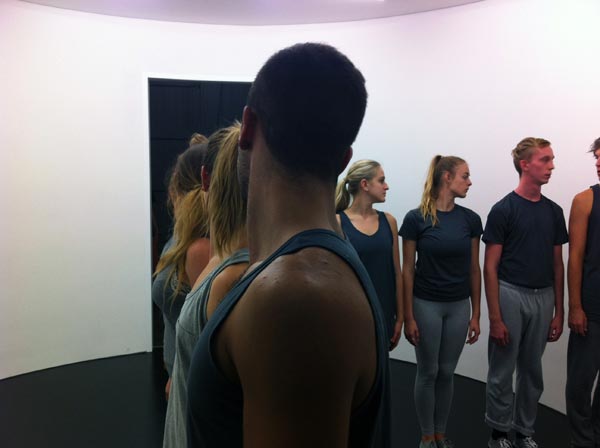
Allora & Calzadilla
Revolving Door, 2011
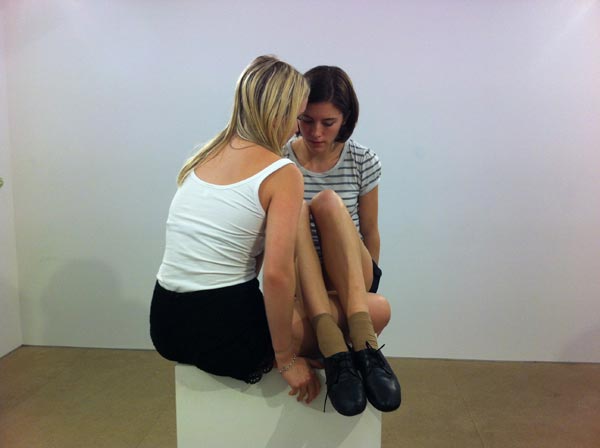
Clark Beaumont
Coexisting, 2013
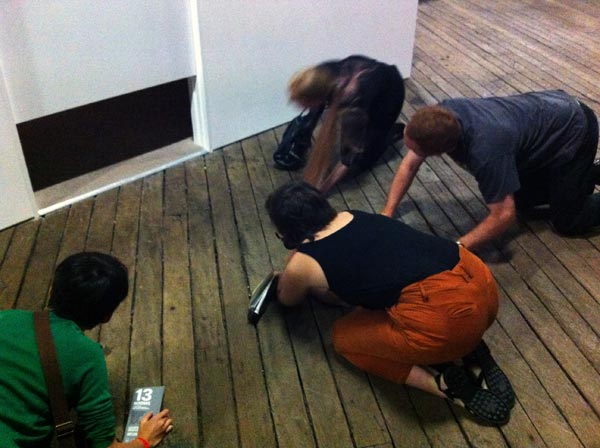
Laura Lima
Man=Flesh/Woman=Flesh–Flat, 1997
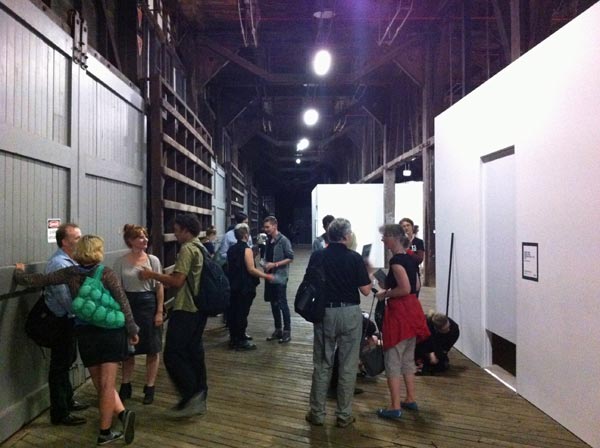
13 Rooms
Curated by Hans Ulrich Obrist and Klaus Biesenbach
11–21 April 2013
Pier 2/3, Hickson Road, Walsh Bay, Sydney

